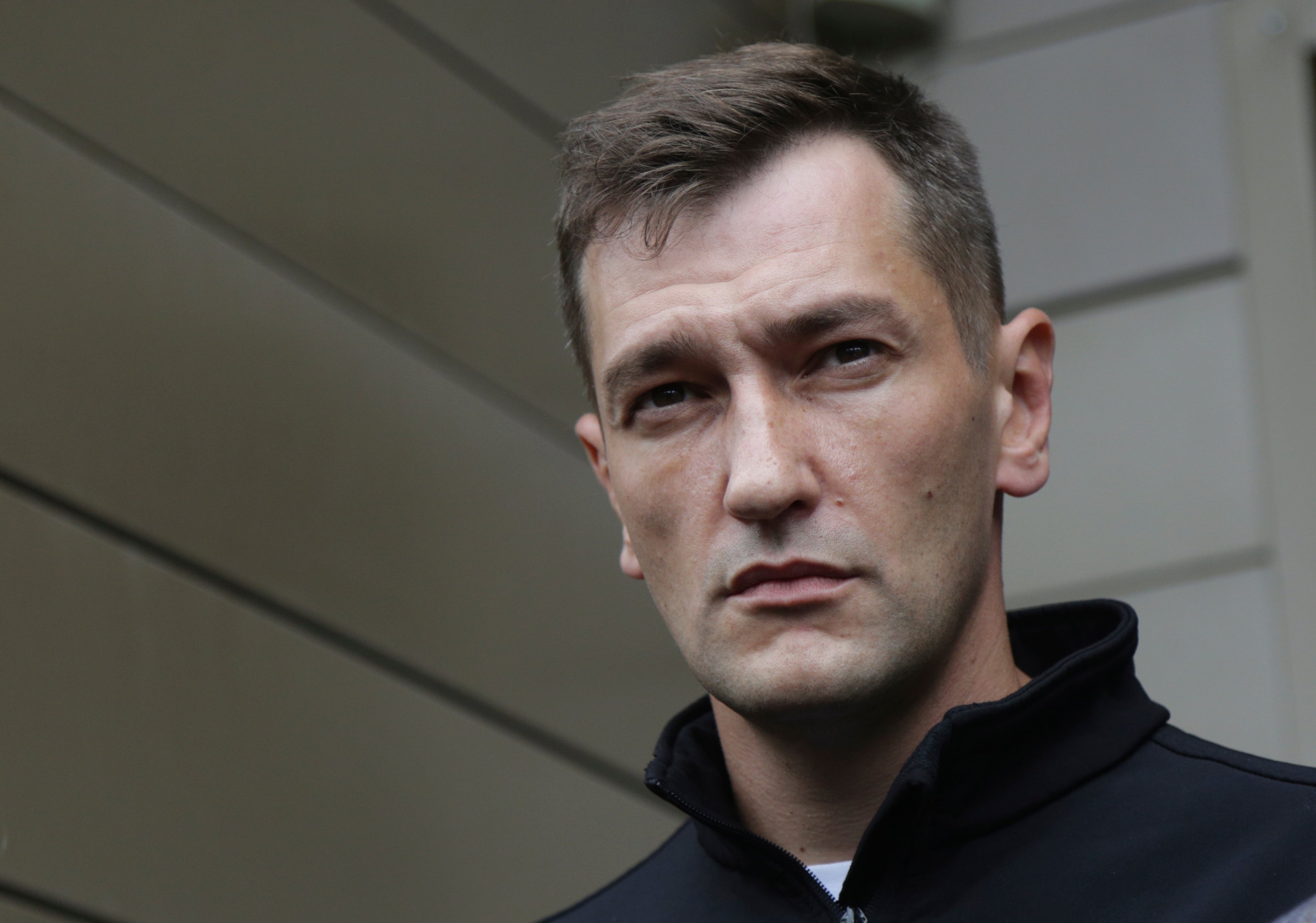Russian court hands Navalny's brother suspended sentence
A Russian court has given the brother of imprisoned Russian opposition leader Alexei Navalny a suspended sentence on charges for calling for street protests in violation of coronavirus restrictions

A Russian court gave the brother of imprisoned opposition leader Alexei Navalny a suspended sentence Friday on charges of calling for street protests in violation of coronavirus restrictions.
Moscow s Preobrazhensky District Court found Oleg Navalny guilty of incitement to breach sanitary rules and gave him a one-year suspended prison sentence. Demonstrations and other mass gatherings have been banned in Russia during the pandemic.
Several other Navalny associates have faced the same charges in a controversial criminal case that Russian authorities launched after mass protests against the opposition leader's arrest rocked Russia all across its 11 time zones in January.
On Tuesday, Navalny's top ally, Lyubov Sobol, was sentenced to 1 1/2 years of parole-like restrictions on the same charges.
Navalny, Russian President Vladimir Putin’s most vociferous critic, was arrested in January upon returning from Germany where he spent five months convalescing after a nerve agent poisoning that he blames on the Kremlin — an accusation rejected by Russian officials.
In February, Navalny was ordered to serve 2 1/2 years in prison for violating the terms of a suspended sentence from a 2014 embezzlement conviction that he dismissed as politically motivated.
Oleg Navalny served a 3 1/2-year sentence after being convicted in the same case in what was widely seen as an attempt to pressure his brother.
Navalny's arrest and jailing sparked a wave of mass protests that appeared to be a major challenge to the Kremlin. The authorities responded with mass arrests of demonstrators and the criminal prosecutions of Navalny’s closest associates.
In June, a court outlawed Navalny's Foundation for Fighting Corruption and a network of his regional headquarters as extremist organizations, a ruling that barred people associated with the groups from seeking public office and exposed them to lengthy prison terms.
Last month, the authorities blocked some 50 websites run by Navalny’s team or his supporters for allegedly disseminating propaganda of extremist groups and asked Twitter to take down Sobol’s account.
Navalny's associates have denounced those moves as part of Kremlin efforts to stifle dissent ahead of Russia's Sept. 19 parliamentary election, which is widely seen as an important part of Putin’s efforts to cement his rule before the 2024 presidential election.
The 68-year-old Russian leader, who has been in power for more than two decades, pushed through constitutional changes last year that would potentially allow him to hold onto power until 2036.
As the September election approaches, opposition supporters, independent journalists and human rights activists in Russia face increased government pressure. Russian authorities have declared several independent media outlets and reporters “foreign agents” — a label that implies additional government scrutiny and carries strong pejorative connotations that could discredit the recipients — and targeted prominent investigative journalists with raids.
Subscribe to Independent Premium to bookmark this article
Want to bookmark your favourite articles and stories to read or reference later? Start your Independent Premium subscription today.
